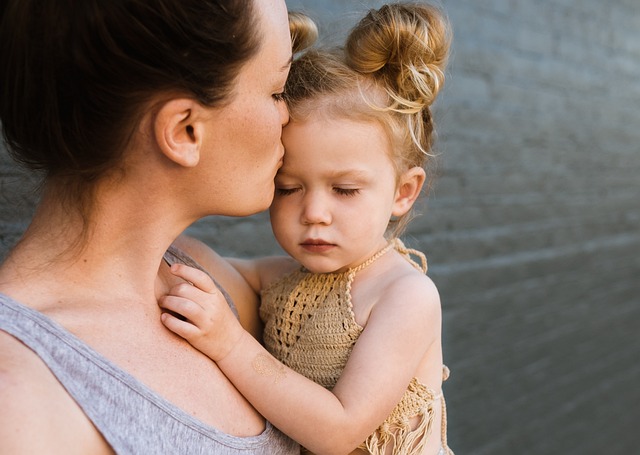Open communication is key to building robust and resilient family support systems. By fostering an environment where every member feels heard and respected, families create stronger networks that provide emotional support during challenges. This two-way exchange of experiences, knowledge, and resources ensures no one struggles alone and enhances mental health support. Parenting support groups exemplify this by offering safe spaces for connection and caregiving help. Overcoming barriers like judgment fears and busy schedules through such platforms strengthens family ties and fosters collective well-being. Virtual communities further extend these benefits globally, empowering families to navigate life's challenges together.
Open communication is the cornerstone of robust family support systems. In today’s fast-paced world, fostering transparent dialogue strengthens family bonds, addresses challenges collaboratively, and promotes emotional well-being. This article delves into the multifaceted aspects of open communication within families, offering strategies to overcome barriers, build strong networks, create safe spaces for expression, and leverage community resources like parenting support groups and mental health services for enhanced family caregiving help. By embracing these practices, families can cultivate supportive environments that strengthen ties and enhance overall well-being.
Recognizing the Importance of Open Communication in Family Support
Open communication is the cornerstone of a robust and resilient family support system. By fostering an environment where every member feels heard and respected, families can build stronger networks that provide invaluable emotional support during challenging times. This two-way exchange allows for sharing of experiences, knowledge, and resources, ensuring that no one struggles alone—a key aspect of community for families seeking caregiving help or parenting guidance.
Recognizing the significance of open dialogue, mental health support for families becomes more accessible and effective. It encourages individuals to express their feelings, fears, and aspirations, strengthening family ties and promoting collective well-being. Parenting support groups, for instance, thrive on this principle, providing a safe space where parents can connect, share strategies, and access family caregiving help from experienced peers. Ultimately, creating supportive environments through open communication empowers families to navigate life’s complexities with greater ease and unity.
– Understanding the benefits of transparent communication
Open and transparent communication is a cornerstone in fostering strong family support systems. By encouraging honest dialogue within families, parents can create an environment where their children feel comfortable sharing their thoughts, concerns, and experiences. This strengthens family ties and builds resilience, especially when navigating challenging situations such as mental health issues or the demands of family caregiving. When families have access to emotional support systems and parenting support groups, they can tap into a wealth of knowledge and resources, enhancing their ability to provide adequate care and nurturing.
Promoting open communication also facilitates the exchange of valuable family caregiving help and practical advice within community for families. This creates a network of support where each family contributes unique perspectives and skills, strengthening the overall mental health support available to all members. Creating supportive environments through such initiatives not only enhances individual well-being but also nurtures a sense of belonging and camaraderie among family members and within larger parenting support groups.
– Identifying barriers to open dialogue within families
Many families struggle to establish open communication due to various barriers that can hinder meaningful dialogue. One significant obstacle is the fear of judgment or conflict, where members may avoid discussing sensitive topics for worry of misunderstanding or criticism from their loved ones. This hesitation can prevent the sharing of emotional support systems and family caregiving help, creating a sense of isolation within the network. Additionally, busy schedules and the demands of daily life often lead to fragmented interactions, making it challenging to establish consistent communication channels.
Another factor contributing to these barriers is the lack of structured platforms or communities for families seeking support. Parenting support groups and mental health support for families are essential resources for fostering open dialogue as they provide a safe space to share experiences and seek guidance. Strengthening family ties further requires creating supportive environments that encourage honest conversations, promoting understanding, and building trust among its members.
Building Strong Family Networks for Enhanced Support
Building strong family networks is a cornerstone of fostering open communication and enhancing support within family support systems. By strengthening family ties, we create a robust foundation where members can share experiences, offer guidance, and provide emotional support systems. Parenting support groups, for instance, offer a community for families where parents can connect, exchange resources, and seek help for various challenges, from childcare to mental health. These networks not only alleviate individual burdens but also enrich the overall well-being of family caregiving.
Community for families extends beyond local gatherings; it encompasses virtual platforms and online forums that facilitate communication and access to information. Creating supportive environments through these channels allows family members to stay connected regardless of geographical distances. Whether seeking advice on parenting, finding resources for specific needs, or simply sharing daily experiences, these networks empower families to navigate life’s challenges together. By integrating such initiatives, we enhance the availability of family support resources and strengthen emotional bonds within caregiving systems.
Open communication is the cornerstone of robust family support systems. By recognizing and overcoming barriers to dialogue, families can unlock a multitude of benefits, from enhanced emotional well-being to improved caregiving practices. Building strong family networks through parenting support groups and community for families fosters a sense of belonging and access to valuable resources like mental health support for families. Strengthening family ties creates supportive environments that not only ease the challenges of family caregiving help but also enrich everyday life, ensuring every member feels valued and heard.
